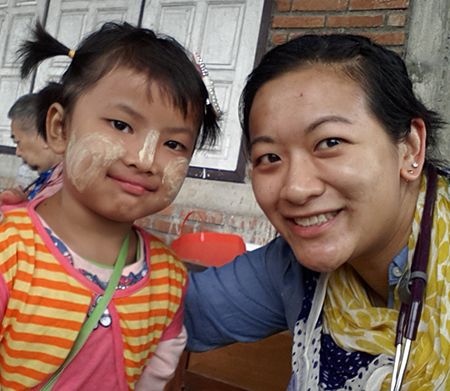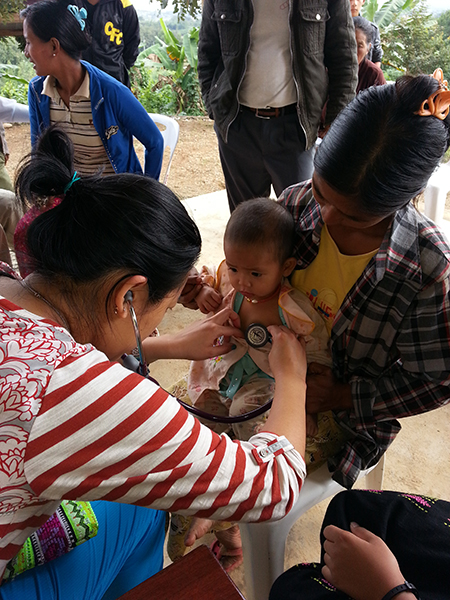By Mercedes Chan
I am my father’s daughter. From the age of three, I accompanied him to BC Children’s Hospital, where he worked as a pediatric oncologist. The hospital’s emergency room, call rooms and doctors were regular fixtures in my childhood.
To those who knew me, it was not surprising that I would follow in my father’s footsteps. I was inspired by his love of medicine, but perhaps even more, he and my mother’s strong belief in and dedication to community service and social responsibility. My parents would make regular trips to China to provide medical care and education in developing cities and rural villages. Be it battling altitude sickness on our way to see patients near Tibet, or hiking hours to a clinic site only to be greeted by hundreds of villagers who had travelled even longer distances to see us, I loved meeting these challenges in attempts to reach the unreached.
In my third year of my pediatrics residency, though, something changed. The growing identity of “Dr.” grew heavy on my shoulders. Whether it was coping with the increasing demands of training or adjusting to the reality that I would soon be an attending physician, I felt my roles and responsibilities as a burden, and attempted to escape. In an act of rebellion, I went on a non-medical service trip to Rwanda to do everything but see patients. I cleaned washrooms, visited street kids, even worked in a village to make mud bricks for a cowshed.
One day while visiting the Genocide MemorialCenter in Kigali, though, I realized I had other lessons to learn. The stories of genocide victims told of dreams and lives cut short, including that of a 12-year-old girl whose life ambition was to be a doctor. This was a reality she would never see, and one I had callously rejected. Later, as I visited tuberculosis clinics, entire villages affected by HIV, and orphanages filled with children of the genocide, I quickly realized that I was being equipped with knowledge and skills that were not to be wasted.
I completed my residency, then a fellowship in pediatric rheumatology at UBC, when my parents invited me to join them for a trip to Thailand and Myanmar. And it was in Myanmar that another 12-year-old girl reinforced my commitment.
Mae Ai had travelled from the Laotian border, 11 kilometres away on rural backroads, to seek help for ankle pain and swelling she had suffered for two years. Our interpreters found her complaints laughable because she looked so well, but I quickly recognized she had juvenile idiopathic arthritis, and needed treatment. At that moment, I was grateful for the training that allowed this girl to have a diagnosis as well as a chance at a better life.
I had lost sight of my purpose when I became too focused on myself – a common pitfall amongst the busyness of medical school, training and then establishing a practice. I now seek to embrace, rather than dread, the responsibility that comes with a medical education. My experiences in global health have strengthened my sense of purpose. For this, I see no better way of showing my gratitude than by giving back to the communities I serve – here in B.C., and overseas. Should I ever lose my way again, I know I have to do only this: Follow in my father’s footsteps.
Mercedes Chan is a Clinical Fellow in the Department of Pediatrics and a pediatric rheumatologist at BC Children’s Hospital. Through the Faculty of Medicine’s Centre for Health Education Scholarship, she is earning a Master of Health Professions Education from Maastricht University.

